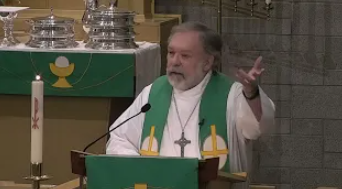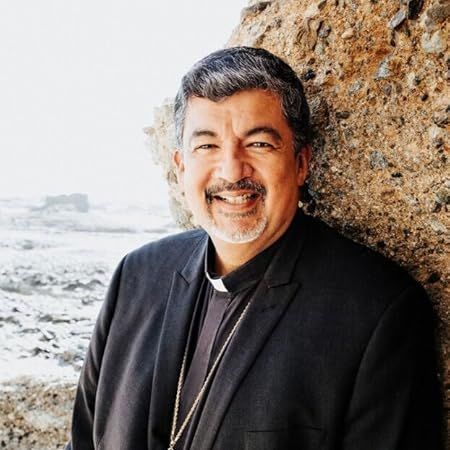A Pastor's Letter
The Rich Young Man: A Lesson in Humility & God's Infinite Love
Have you ever felt like you had it all figured out, only to be humbled by a sudden realization? The story of the rich young man in the Gospels of Matthew, Mark, and Luke offers a powerful lesson in humility, self-reflection, and the boundless love of God.
Picture this: A young man, full of confidence and self-assurance, approaches Jesus with a question that seems simple on the surface. "What must I do to inherit eternal life?" he asks. On the face of it, it's a reasonable inquiry. After all, isn't that what we all want to know? But there's a catch in his question – a subtle yet significant flaw that Jesus is quick to address. The young man's approach reveals a common misconception many of us hold: the idea that we can earn our salvation through our own actions. It's as if he's saying, "Tell me what boxes I need to check, and I'll make sure I've got them all ticked." This attitude places us in a dangerous position, one where we inadvertently try to put ourselves in God's role.
Jesus, in His infinite wisdom, doesn't immediately rebuke the young man. Instead, He offers a gentle warning: "No one is good except God alone." It's as if Jesus is saying, "Think carefully about what you're about to say next." It's reminiscent of those moments in childhood when our parents caught us in an obvious lie and gave us one last chance to reconsider our words. But the young man misses the cue. He boldly proclaims, "All these [commandments] I have kept from my youth." Can you imagine the audacity? Standing before the Son of God and declaring your own perfection? It's a moment that makes us cringe, yet how often do we approach God with a similar attitude?
How many times have we attended church or approached communion thinking, "I don't really need this, but it's a good thing to do"? How often have we treated our faith as a checklist, believing that as long as we show up and go through the motions, we're entitled to God's forgiveness? This is where the beauty of the Gospel shines through, particularly in Mark's account. Instead of condemning the young man for his arrogance, we read these powerful words: "Jesus, looking at him, loved him." In that moment of supreme self-righteousness, when the young man was at his most unlovable, Jesus responded with love.
This is the heart of the Gospel message. We don't deserve God's love or forgiveness. We can't earn it through our actions or our church attendance. God forgives us and loves us because of what Christ has done on the cross. It's not about our perfection, but about His perfect sacrifice. The story takes an interesting turn when Jesus, knowing the young man's heart, tells him to sell his possessions and give to the poor. This isn't a universal command for all believers to live in poverty. Rather, Jesus is pointing out the idol in this man's life – his wealth. He's offering the young man a chance to identify and remove the very thing that's standing between him and true faith.
What's your idol? What's the thing in your life that makes you feel safe, wise, or strong apart from God? It might be money, like the rich young man, or it could be your career, your relationships, or even your own sense of righteousness. Jesus invites us to cast these aside and follow Him wholeheartedly.
The call to "come, follow me" is extended to each of us. It's an invitation to put away our idols, to stop seeing our faith as something we're entitled to, and to embrace the undeserved grace that God offers. It's a call to humility, recognizing that we don't deserve any of God's blessings, yet He gives them freely out of His great love.
There's a fascinating historical note worth mentioning. Some Christian historians believe that the rich young man in this story may have been Mark himself, the author of the Gospel. If true, it adds a layer of hope to the narrative. While the story ends with the young man going away sorrowful, unable to part with his great possessions, the fact that Mark later became a follower of Christ suggests that change is possible. Even if we initially struggle to let go of our idols, God's patience and love remain constant, always offering us another chance to follow Him.
This story serves as a powerful reminder that God sees us completely. He looks past our distractions, our anger, our envy, and our ignorance. He sees the idols we cling to and the sins we try to hide. And yet, in His great mercy, He loves us anyway. He forgives us not because we deserve it, but because of Christ's sacrifice on our behalf.
Moreover, God doesn't just forgive us and leave us to figure things out on our own. He offers to walk with us through the challenging process of change. He provides the strength we need to put away our idols and the guidance to follow Him more closely. This is the true treasure in heaven that Jesus speaks of – not material wealth, but the priceless gift of knowing and being known by Christ.
As we reflect on this story, let's ask ourselves some challenging questions:
1. Where in my life am I acting entitled to God's grace?
2. What idols am I holding onto that might be hindering my relationship with God?
3. How can I cultivate a heart of humility and gratitude for God's undeserved love?
4. In what ways can I respond to Jesus' call to "come, follow me" more fully?
Remember, it's never too late to put aside the things that distract us from God and to follow Him wholeheartedly. His arms are always open, His love is always available, and His invitation to follow Him is always extended. May we have the courage to respond with humility, gratitude, and faith.
Peace be with you,
Pastor Nate Widener
News & Notes

About Us
Useful Links
Subscribe to Our Newsletter
Contact Us
Thank you for joining our newsletter. You will receive the newsletter via email on Mondays.
Together with you in Christ,
Pastor Dancy
Pastor McDowell
Pastor Nate
Please try again later







